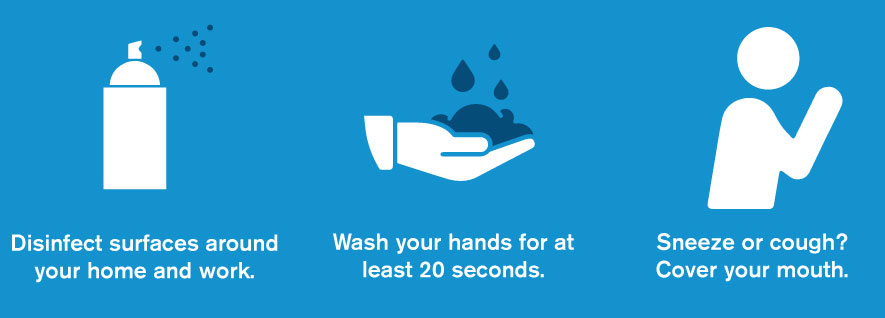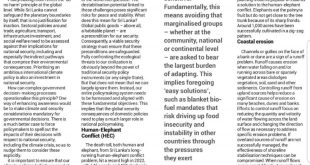What is coronavirus and should I be concerned?

A coronavirus is a type of virus. As a group, coronaviruses are common across the world.
Generally, coronavirus can cause more severe symptoms in people with weakened immune systems, older people, and those with long term conditions like diabetes, cancer and chronic lung disease.
What are the signs and symptoms of this new virus?
The symptoms of this new coronavirus (COVID-19) include cough, fever, shortness of breath, or flu-like symptoms. The current evidence is that most cases appear to be mild.
If you have returned from any of the specified countries and areas listed on this page, you should follow the advice that is relevant to you.
How many cases do we have in the UK?
As of 9am 15 March 2020, a total of 40,279 people have been tested in the UK, of which 38,907 were confirmed negative and 1,372 confirmed as positive. 35 patients who tested positive for coronavirus have sadly died.
What’s the current travel advice?
Find out the latest travel advice on the FCO’s guidance page.
How does this new coronavirus spread – I’m concerned I could catch it?
Because it’s a new illness, we do not know exactly how it spreads from person to person, but similar viruses spread by cough droplets or sneeze droplets. These droplets fall on people in the vicinity and can be directly inhaled or picked up on the hands and transferred when someone touches their face.
How long any respiratory virus survives will depend on a number of factors; for example:
- what surface the virus is on
- whether it is exposed to sunlight
- differences in temperature and humidity
- exposure to cleaning products
Under most circumstances, the amount of infectious virus on any contaminated surfaces is likely to have decreased significantly by 24 hours, and even more so by 48 hours.
Can the virus survive on cargo that has arrived from an affected area?
There is currently no evidence to suggest that the virus can be transmitted from post, packages or parcels from China.
What can I do to reduce my risk of catching coronavirus?
There are things you can do to help stop germs like coronavirus spreading:
- always carry tissues with you and use them to catch your cough or sneeze. Then bin the tissue, and wash your hands, or use a sanitiser gel
- wash your hands more often than usual, for 20 seconds each time with soap and water or hand sanitiser, especially when you:
- get home or into work
- blow your nose, sneeze or cough
- eat or handle food
- avoid touching your eyes, nose and mouth with unwashed hands
- avoid close contact with people who are unwell
Is hand sanitiser effective?
The best way to protect yourself from infections like coronavirus is to regularly wash your hands with soap and water. If soap or water aren’t available and your hands are visibly clean, then sanitiser gel can be used. But proper hand washing is the most effective method and this should be your first choice.
Should people avoid shaking hands?
We may get to a point where if we see more widespread infection we ask people to limit the social contact they have with each other.
This could include limiting everyday interaction, although we’re not there yet. What’s most important at the moment is that people practice good hand and respiratory hygiene and wash their hands frequently and thoroughly.
Should people wear face masks to protect themselves from infection?
Face masks play a very important role in clinical settings, such as hospitals but there’s very little evidence of widespread benefit from their use outside of these clinical settings. Facemasks must be worn correctly, changed frequently, removed properly and disposed of safely in order to be effective.
If I live in the area where coronavirus patients are reported as coming from – am I at extra risk?
We ensure that someone with coronavirus doesn’t put others at risk by treating them in isolation and carefully investigating who they had close contact with through contact tracing.
Contact tracing is a fundamental part of outbreak control that’s used by public health professionals around the world.
If a person tests positive for coronavirus, the health official will speak to the patient to identify anyone who has who has had close contact with them during the time they are considered to be infectious and go all out to find these people as soon as possible.
Once health official have contacted them they will then give them the advice they need. If they are in groups considered to be a higher risk, authorities will make sure that we follow up with them daily to see how they are. If they become unwell we are then able to assess them quickly and take appropriate action.
What does self-isolation mean for people who don’t have symptoms?
If you have been asked to self-isolate because of your recent travel, but had no symptoms, make sure you report any cough, fever or shortness of breath to NHS111, or relevant contact numbers in your place of residence telling them you are being asked to self-isolate because of coronavirus
If you have been given a designated medical contact point, you can also call them for advice and they will talk you through the next steps.
Please read relevant information in regards to self isolation.
Am I allowed to go out to the shops to get food? I need to collect medicine from the pharmacy, what should I do?
If you have been asked to self-isolate for 14 days, it is fine for friends or family to drop off food for you. Alternatively, you can order by phone or online, such as through takeaway services or online shopping deliveries. However, make sure you tell the delivery driver that the items are to be left outside, or as appropriate for your home.
If you need to carry out any other errands, such as collecting medicine from the pharmacy or taking your kids to school, ask friends, family members or anyone else who can provide support for their help.
Should I continue to attend or run sports events?
That there is presently no rationale to close or cancel sporting events, but this may change as the situation evolves.
- Anyone with flu-symptoms should avoid the risk of spreading their infection, whatever that infection may be, by staying at home and recovering.
- For those hosting sporting events, whatever their size, attendees and participants should stay up to date on the government’s latest advice on how to avoid catching or spreading the virus.
- For those travelling to sporting events overseas, the Foreign Office’s travel adviceshould be followed and travellers should note that apart from the countries and territories named in that advice, the government is not presently advising against travel to anywhere else.
- For those who offer community and leisure services, such as running a local football team; or running a gym; hand hygiene should be strongly promoted and encouraged and equipment should be thoroughly cleaned and wiped down after use. The government is planning to publish specific advice on this shortly.
- There is presently no reason people should stop doing their daily sport and physical activities as they normally would.
Can we test people for coronavirus and how does this work?
PHE is a world-leader in developing techniques to aid the public health investigation of infectious diseases. The UK is one of the countries outside China to have an assured testing capability test for this disease.
When a clinician suspects novel coronavirus, they take samples from the nose, throat and deeper respiratory tract and send them for laboratory testing.
Using the diagnostic test, scientists can look for evidence of the presence of any type of coronavirus and then hone in on specific genetic clues that identify the novel coronavirus associated with this outbreak.
PHE’s diagnostic test for coronavirus is being rolled out to 12 laboratories across the UK to accelerate the country’s testing capabilities. This increases testing capacity to more than 1,000 people a day for England.
What happens if I’m tested for novel coronavirus?
A doctor or nurse will swab your nose and throat if you need testing for the novel coronavirus. These samples are then safely transported to one of our labs. Testing starts when your sample reaches the lab; it takes 24-48 hours for testing to be done. Once the result is available, it is sent back to your doctor or nurse who will let you know the result and give you advice on what to do next.
How do we know if the virus is evolving?
PHE has used whole genome sequencing to sequence the viral genome from the first two positive cases in this country and has made the sequence available to the scientific community. Findings are consistent with viral genomes sequenced in China, and we are not seeing changes that suggest the virus has evolved in the last month.
What advice are healthcare professionals being given?
Clinicians in primary and secondary care have already received advice from PHE, covering initial detection and investigation of possible cases, infection prevention and control, and clinical diagnostics.
A Central Alerting System (CAS) Alert will be issued by CMO, Medical Director PHE and Medical Director NHSE/I to frontline staff to increase awareness of the situation and actions to take if potential cases present. NHS England has developed an algorithm to support NHS 111 in identifying suspected potential cases.
Read the collection page for information on coronavirus, including assessment and management.
Please be advised that the information and guidelines provided above are general and some may relate to UK.
Members are advised to check all information in regards to precautionary and preventive measures to be taken relevant to your country of residence, and follow government instructions.
Please take care, and look after yourself and family and help and support the vulnerable and children as much as possible.
“Ya Allah protect us and our families and all Your creation from the calamities which for sure originates from your wisdom, forgive us all our sins, we implore and appeal to you, Ya Rab not to test us on our shortcomings with such tests. If you do not forgive us Ya Rab, we will be at a complete loss. We beg of You in all earnestness Ya Rab to accept our pleading to You” – Aameen Aameen Ya Rab
Rizwan Wahab
Secretary General
WFSLM
Disclaimer :
Views expressed by writers in this section are their own and do not necessarily reflect World Forum for Sri Lankan Muslims (wfslm.org) point-of-view.
 World Forum for Sri Lankan Muslims Sri Lanka Muslims Forum
World Forum for Sri Lankan Muslims Sri Lanka Muslims Forum


